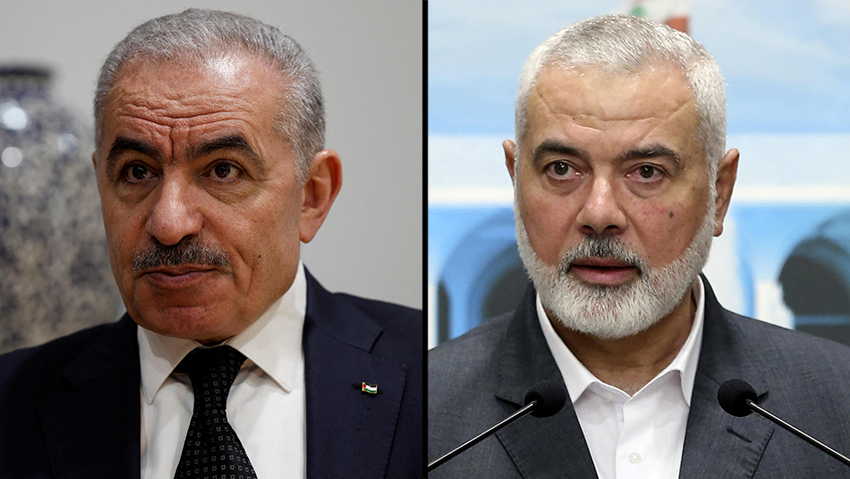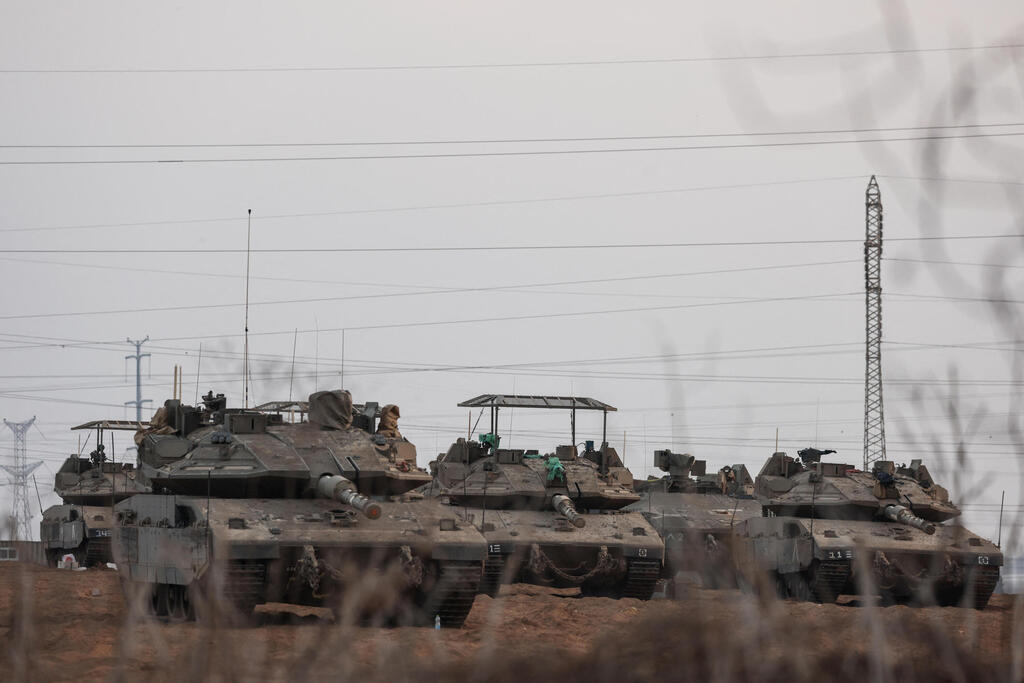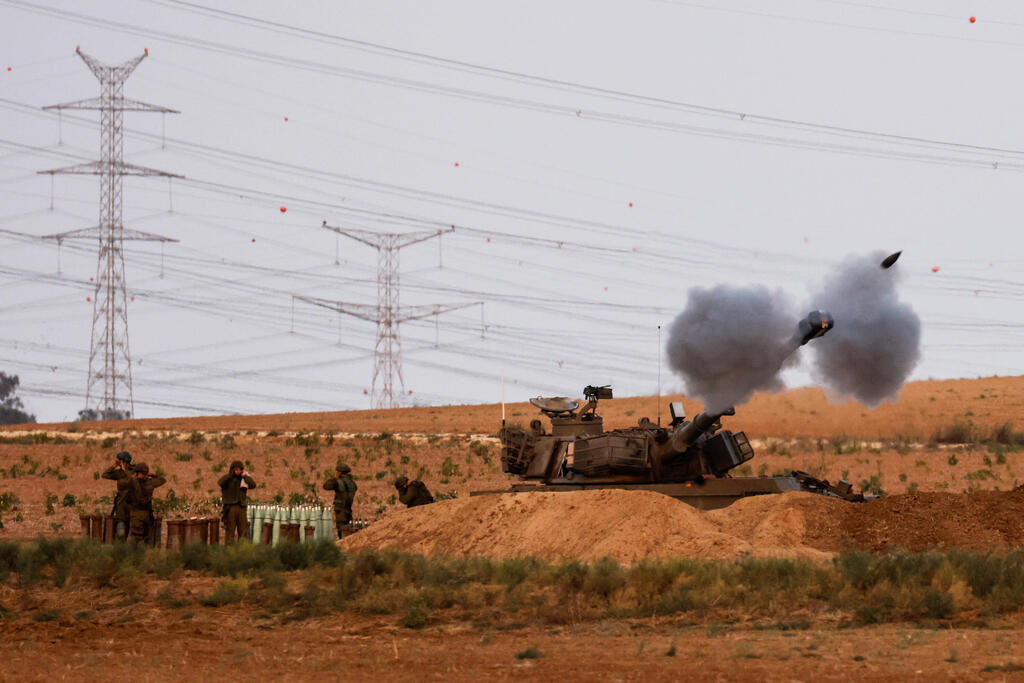Palestinian Prime Minister Mohammad Shtayyeh told Bloomberg on Thursday that he does not rule out Hamas being "a junior partner under the PLO" and assisting in the establishment of "a new independent state including the West Bank, Gaza Strip and East Jerusalem."
More stories:
Against the backdrop of reports that the Palestinian Authority is working with the U.S. on a plan for managing the Gaza Strip post-war, Shtayyeh noted that Israel's goal to collapse Hamas "is unrealistic" and that the organization should join the Palestinian Authority under a new governmental structure.
3 View gallery


Palestinian Prime Minister Mohammad Shtayyeh and Hamas leader Ismail Haniyeh
(Photo: REUTERS/James Oatway, Dalati Nohra/Lebanese Official Government via AP)
"Hamas before October 7 is one thing, and after is another," said Shtayyeh, who has been leading the Palestinian Authority under Chairman Mahmoud Abbas since 2019. “If they are ready to come to an agreement and accept the political platform of the PLO, then there will be room for talk. Palestinians should not be divided.”
Shtayyeh said that he and Abbas met with U.S. officials earlier this week to discuss a plan for the day after the war, and both sides agreed that Israel "shouldn't reoccupy Gaza, reduce its land for a buffer zone or drive Palestinians out."
“We’re not going to go there on an Israeli military plan,” Shtayyeh said. “Our people are there. We need to put together a mechanism, something we’re working on with the international community. There will be huge needs in terms of relief and reconstruction to remedy the wounds.”
According to the report, Shtayyeh will fly to Qatar this weekend to request Doha to "switch its substantial financial support for Hamas of recent years over to the Palestinian Authority, giving it more resources to achieve postwar aims."
Responding to Shtayyeh's comments, Prime Minister Benjamin Netanyahu said on Friday that "there won't be a Hamas, we'll eradicate it."
Netanyahu added that Shtayyeh's statement supposedly vindicated him in his opposition to allowing the Palestinian Authority to control the territory after the war. "The very fact that this is the Palestinian Authority's proposal only strengthens my conviction in my policy: the Palestinian Authority is not the solution," he said.
Washington officials indicate that Israel is reluctant to discuss post-war plans, aiming to avoid signaling that combat operations are concluding. However, in Jerusalem, there is a growing understanding of the need to address this issue, albeit with minimal political strategizing for such discussions.
The success of a political plan hinges on the involvement of Arab states, who are apprehensive about Israel's readiness to engage in broader discussions. While Israel has said that the Palestinian Authority will not partake in Gaza's reconstruction, Arab states are open to involvement but seek assurance of Israel's commitment to a more comprehensive initiative.
U.S. officials state that the Palestinian Authority must be involved in Gaza's rehabilitation, though the specifics of this involvement remain unclear. While it's unlikely that Abbas will directly manage Gaza, the PA's participation is essential to secure support from Arab states. The U.S. envisions this as an opportunity to transform and strengthen a "reformed and revitalized Palestinian Authority."
Last week, Egyptian and regional sources told Reuters that Israel has informed several Arab states that it wants to carve out a buffer zone on the Palestinian side of Gaza's border to prevent future attacks as part of proposals for the enclave after the war ends.
According to three regional sources, Israel related its plans to its neighbors Egypt and Jordan, along with the United Arab Emirates, which normalized ties with Israel in 2020.
They also said that Saudi Arabia, which does not have ties with Israel and which halted a U.S.-mediated normalization process after the Gaza war flared on Oct. 7, had been informed. The sources did not say how the information reached Riyadh, which officially does not have direct communication channels with Israel. Non-Arab Turkey was also told, the sources said.
A U.S. official said Israel had "floated" the buffer zone idea without saying to whom. But the official also repeated Washington's opposition to any plan that reduced the size of Palestinian territory.
National Security Council spokesperson John Kirby reinforced this by saying, "It's not possible to reduce the area of Gaza. It is Palestinian."
First published: 15:09, 12.08.23




